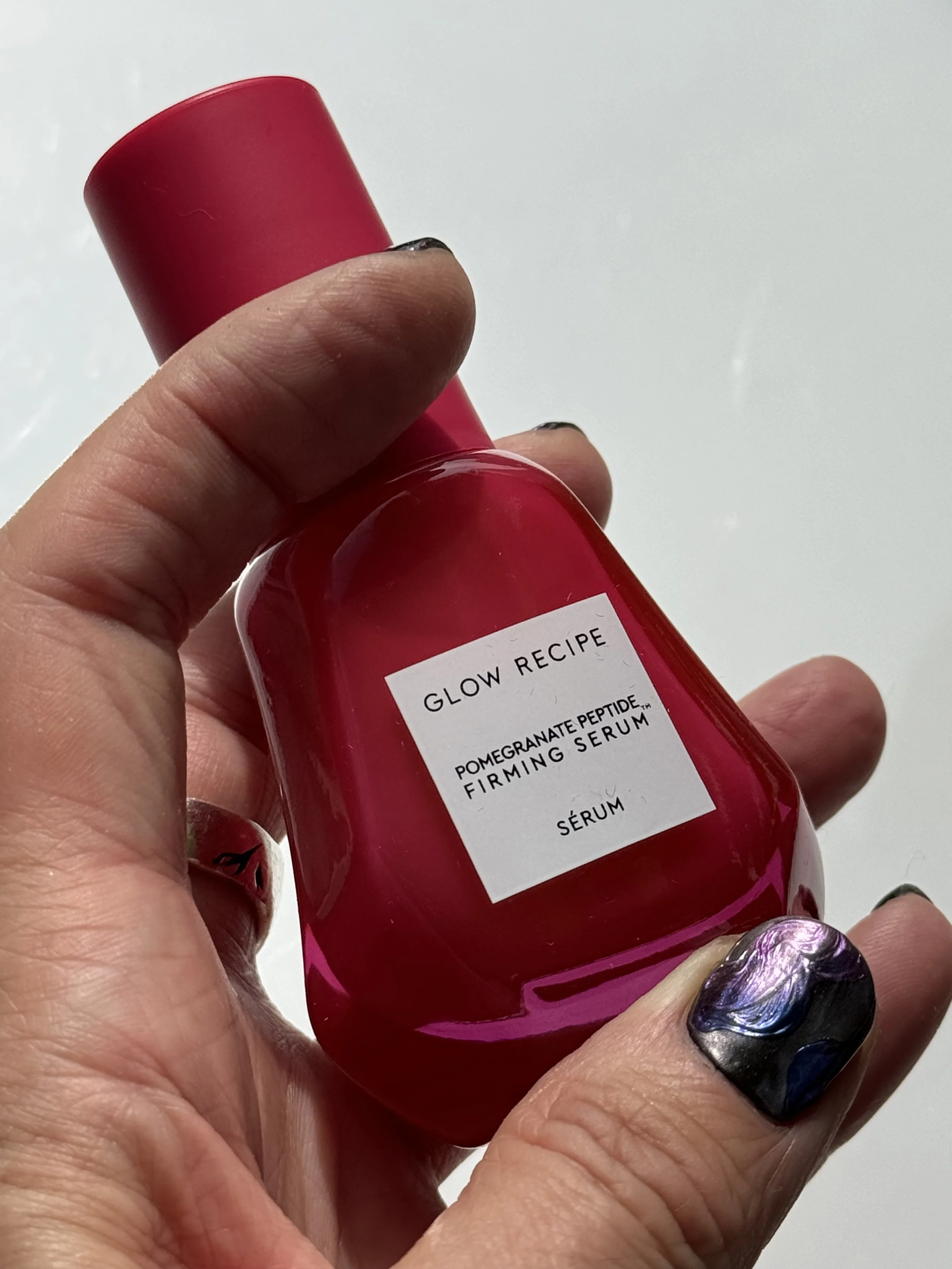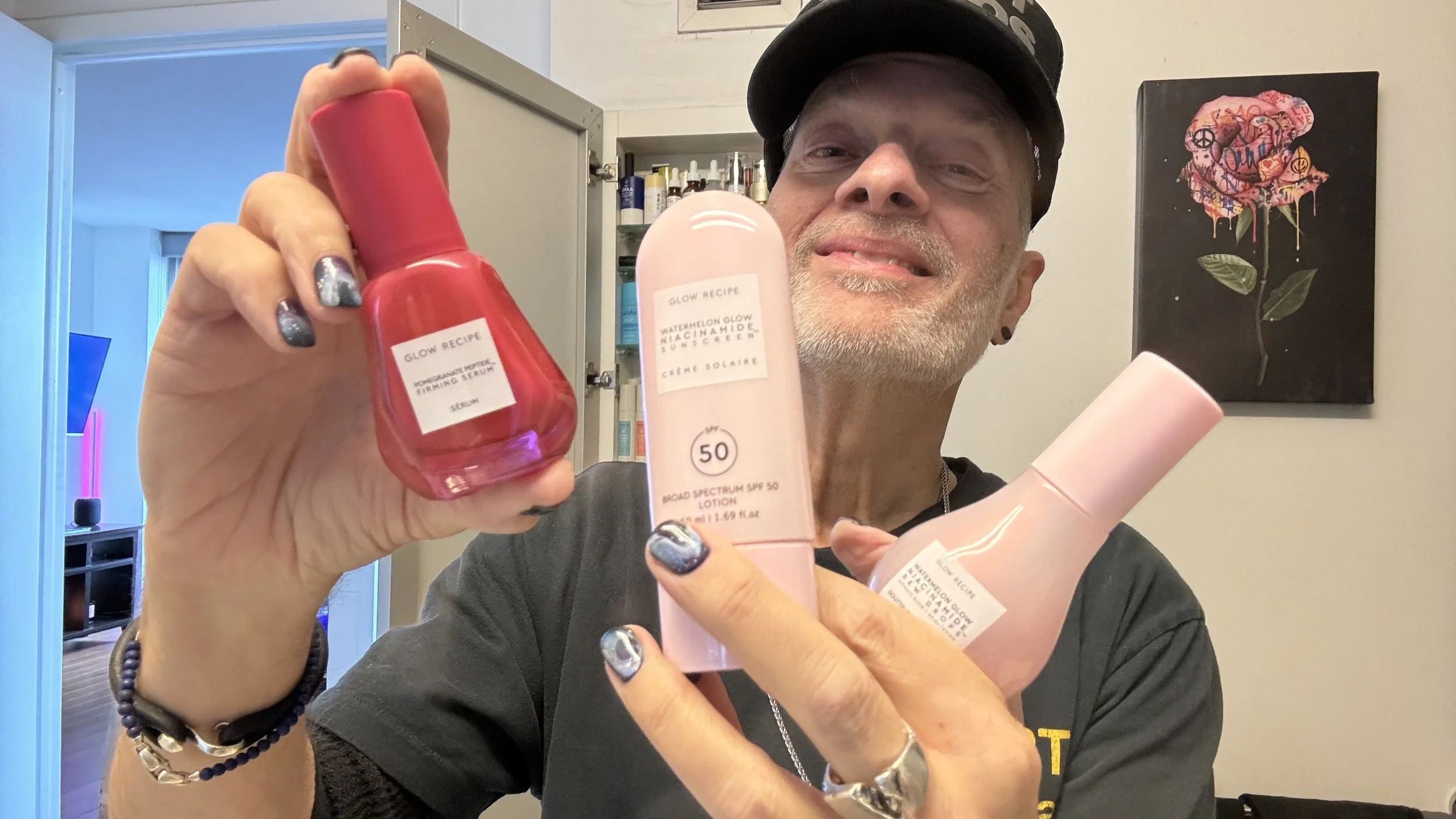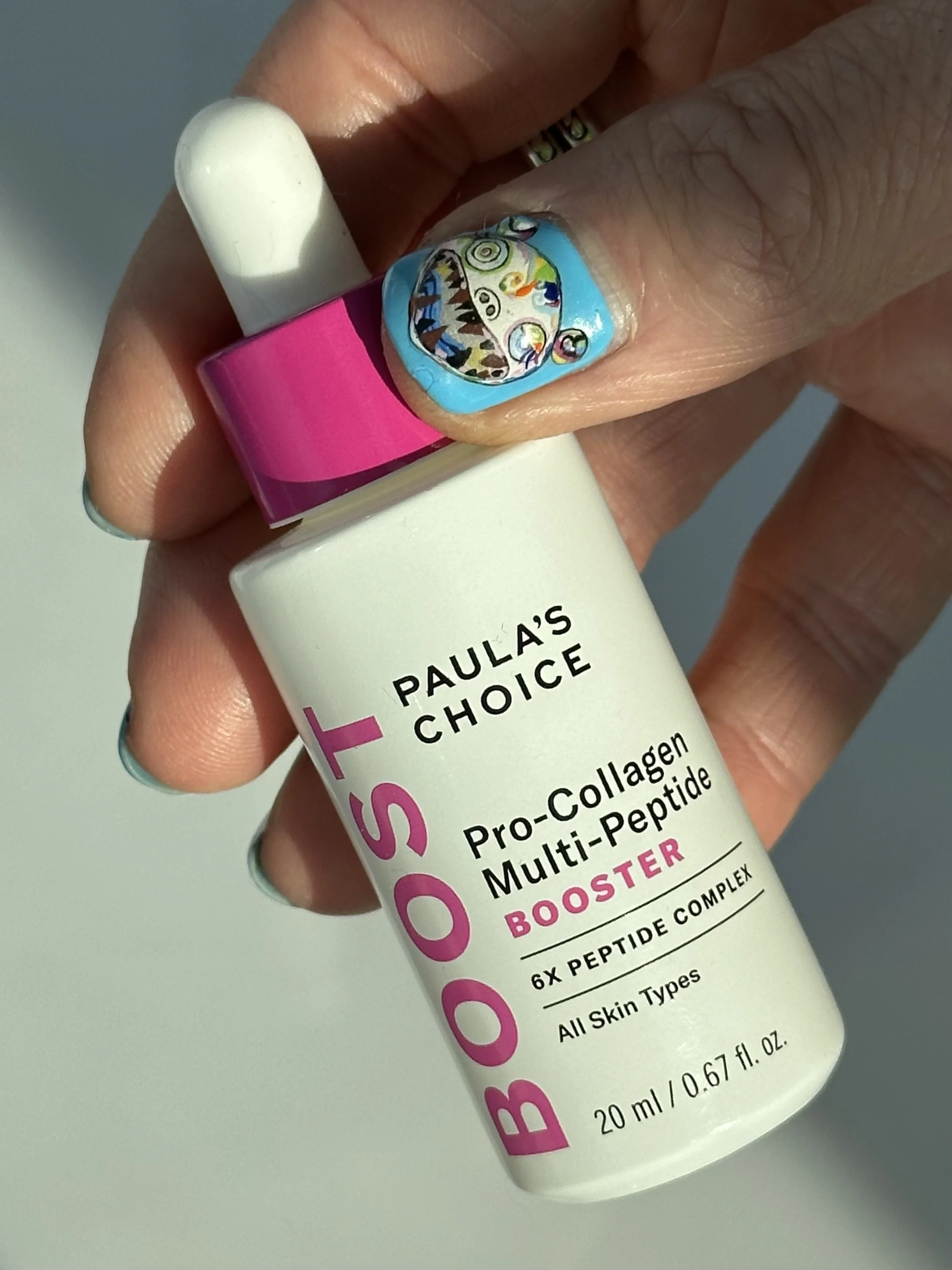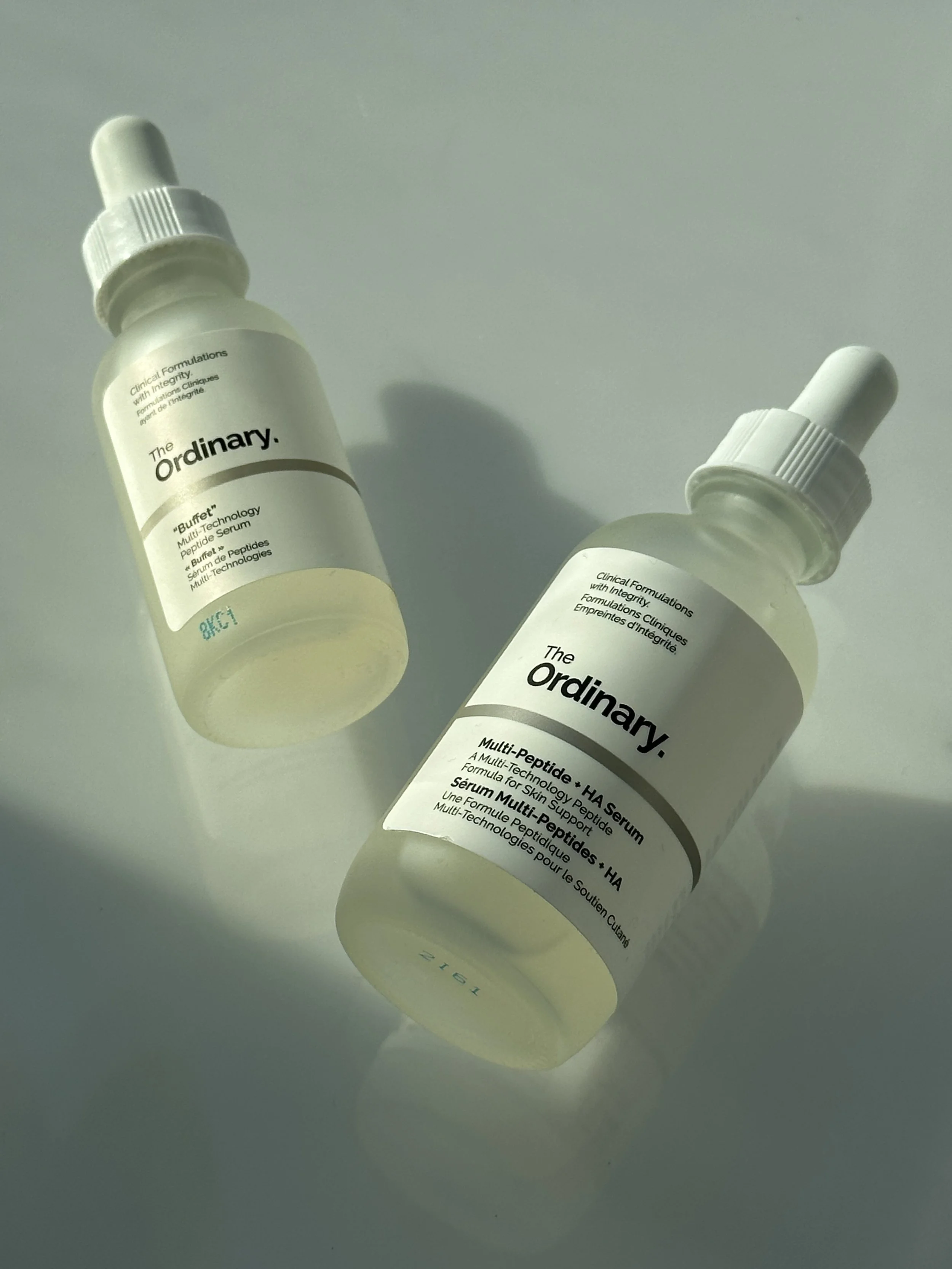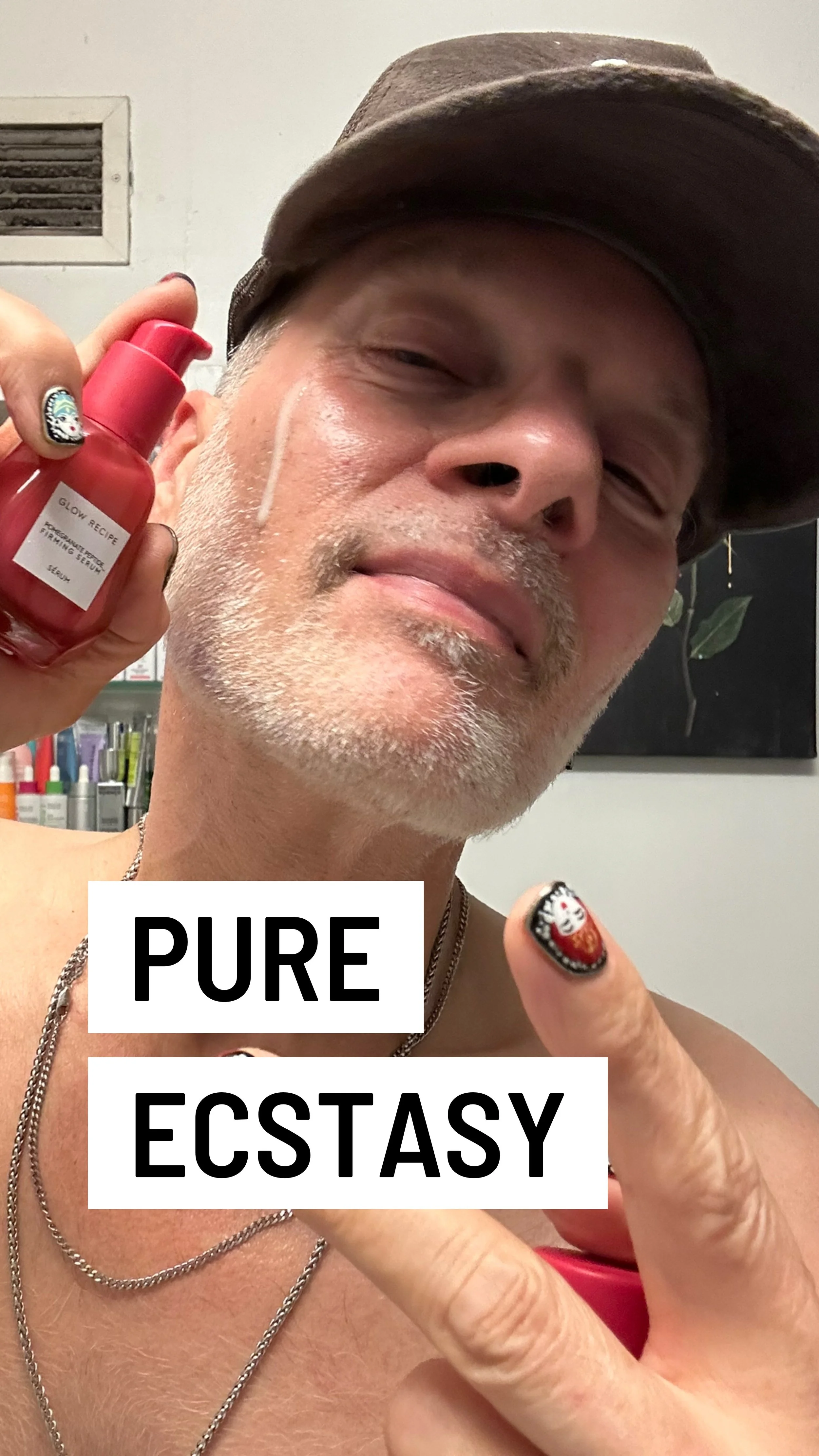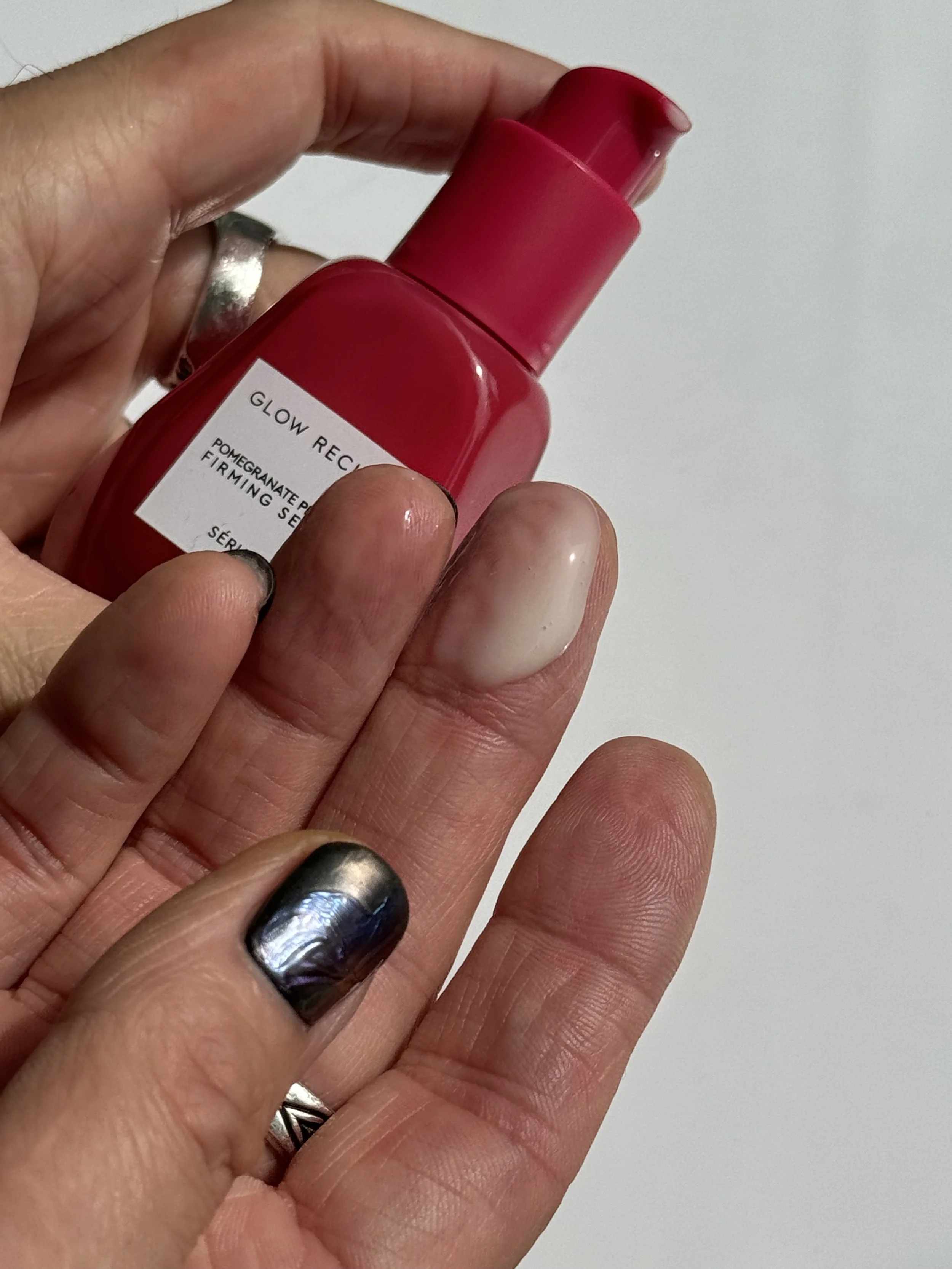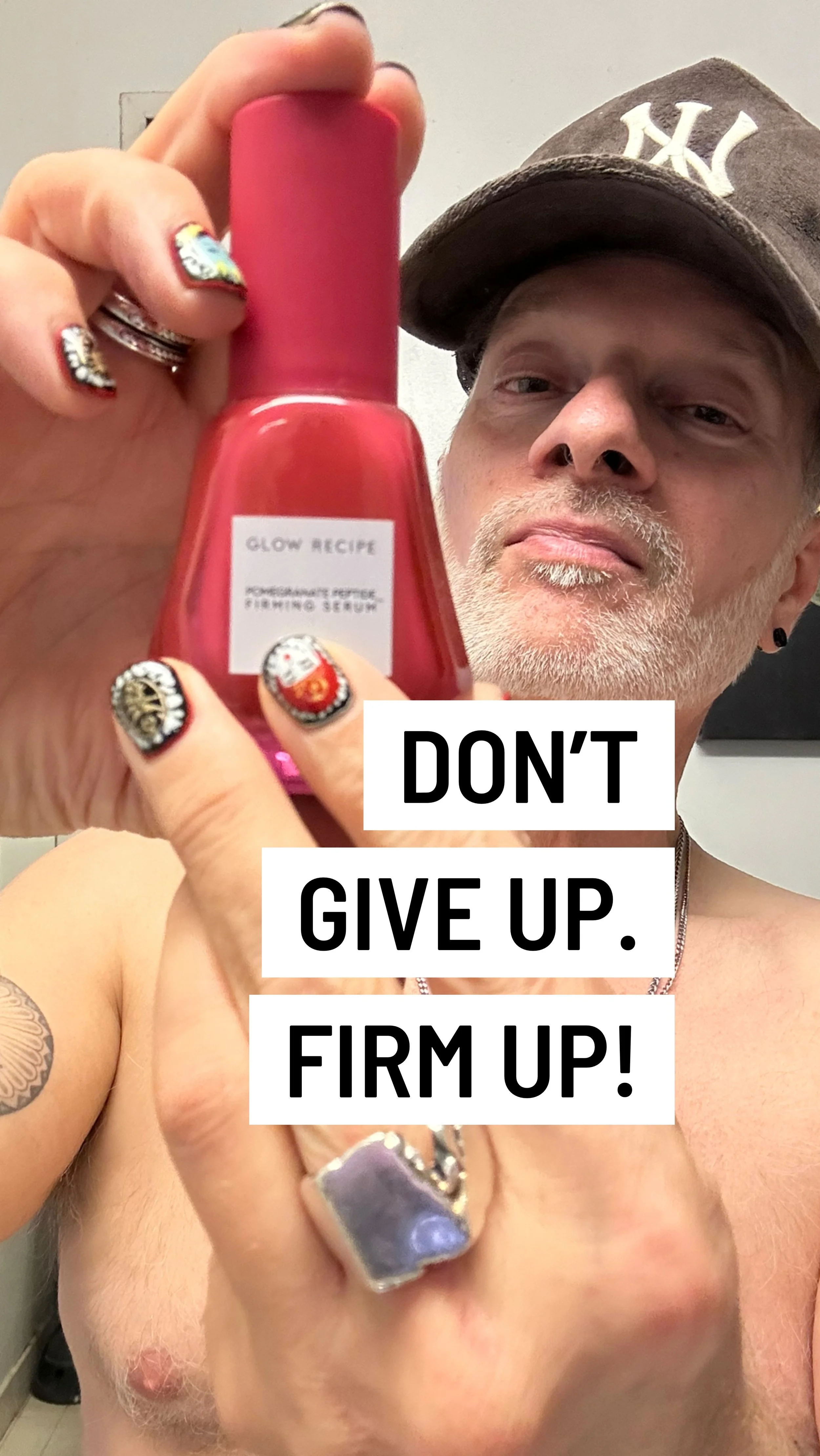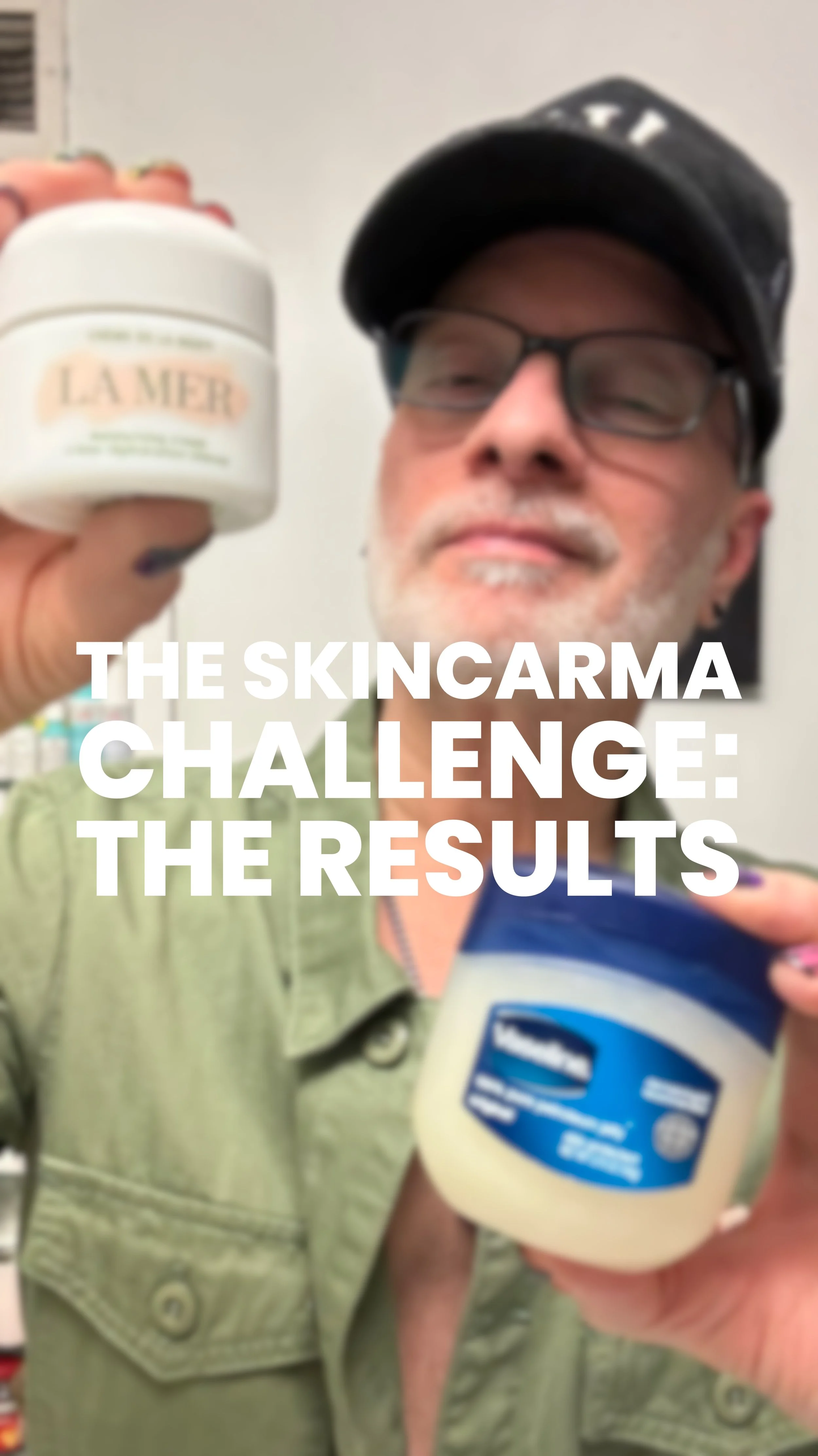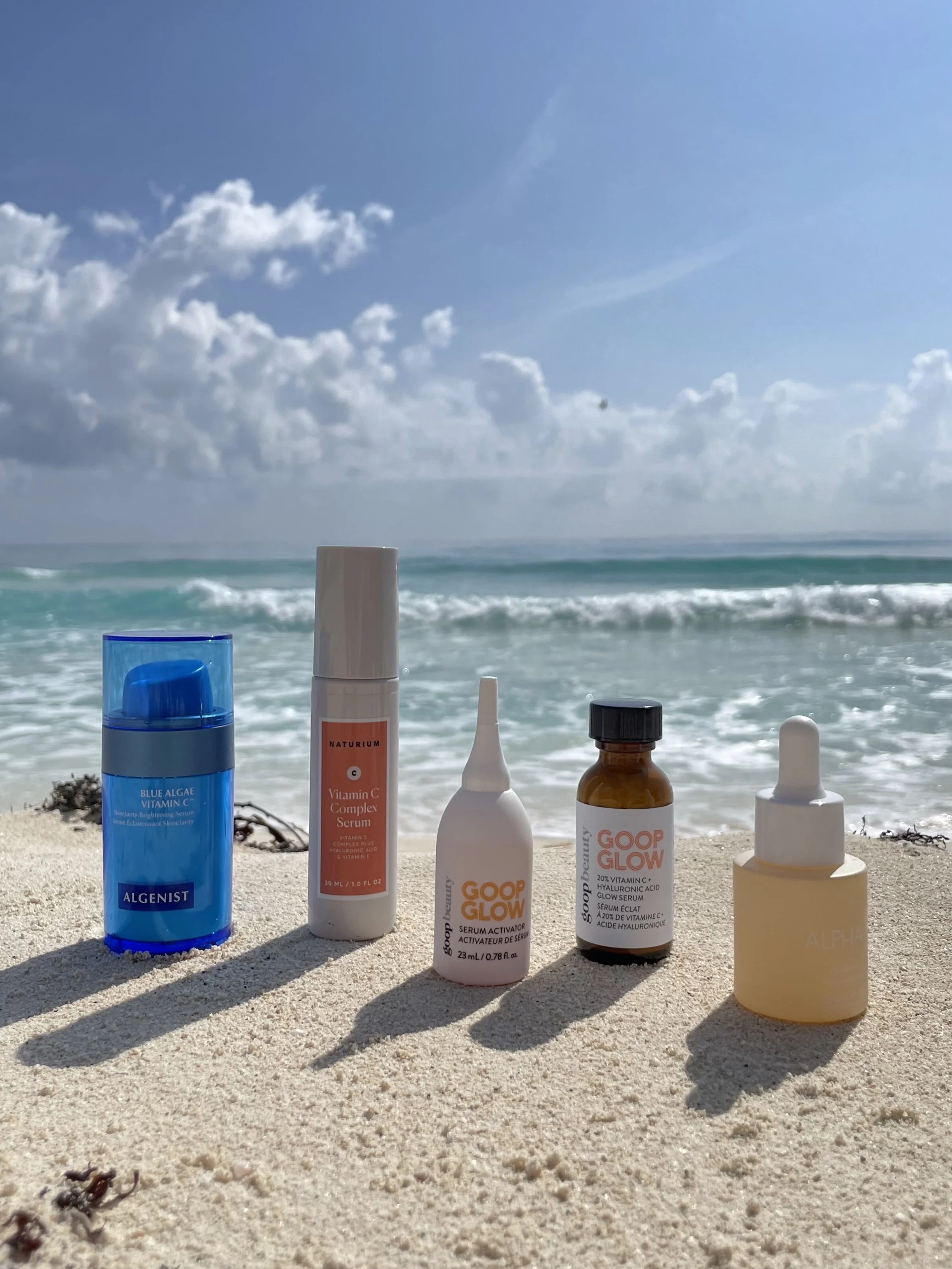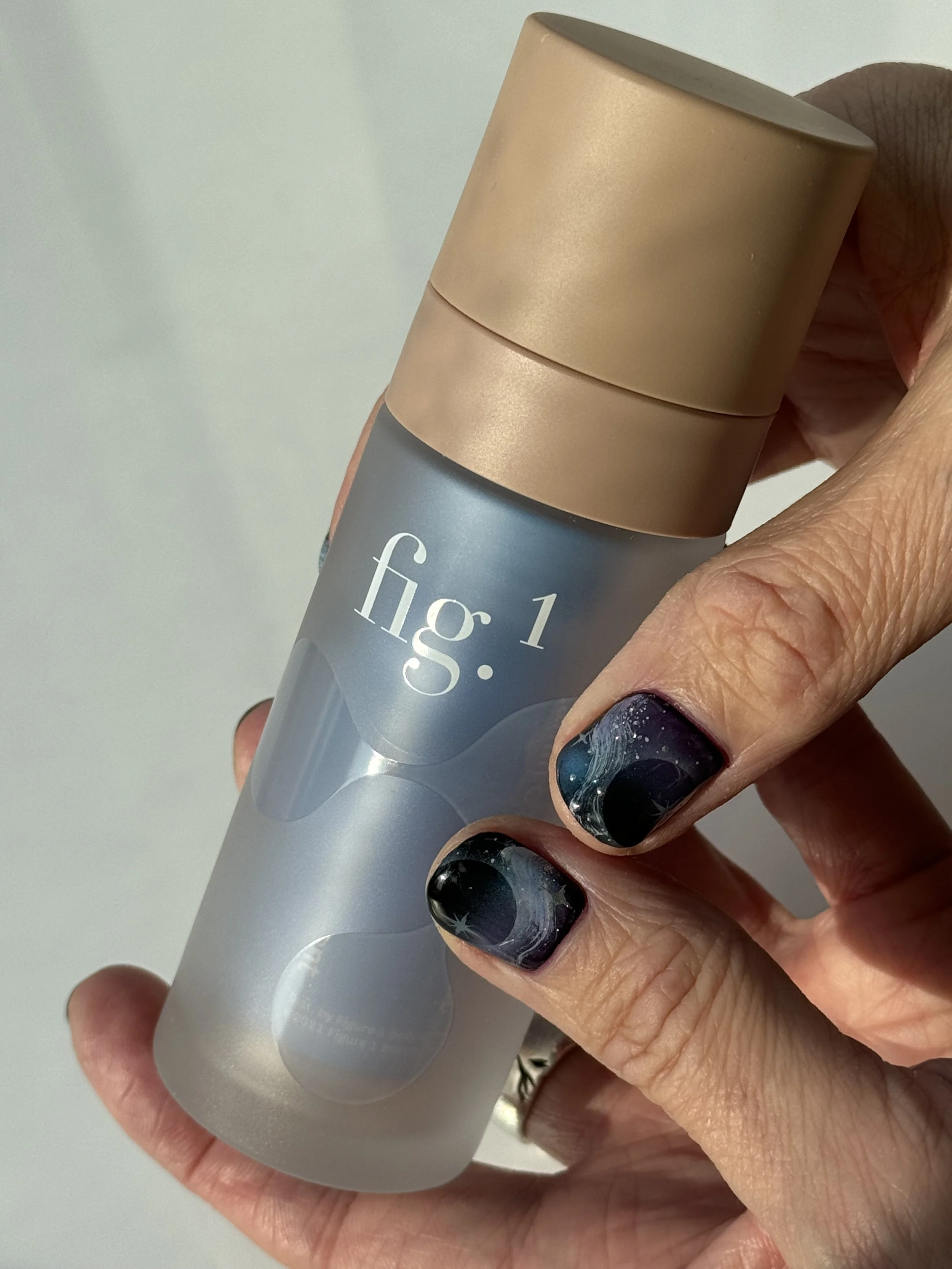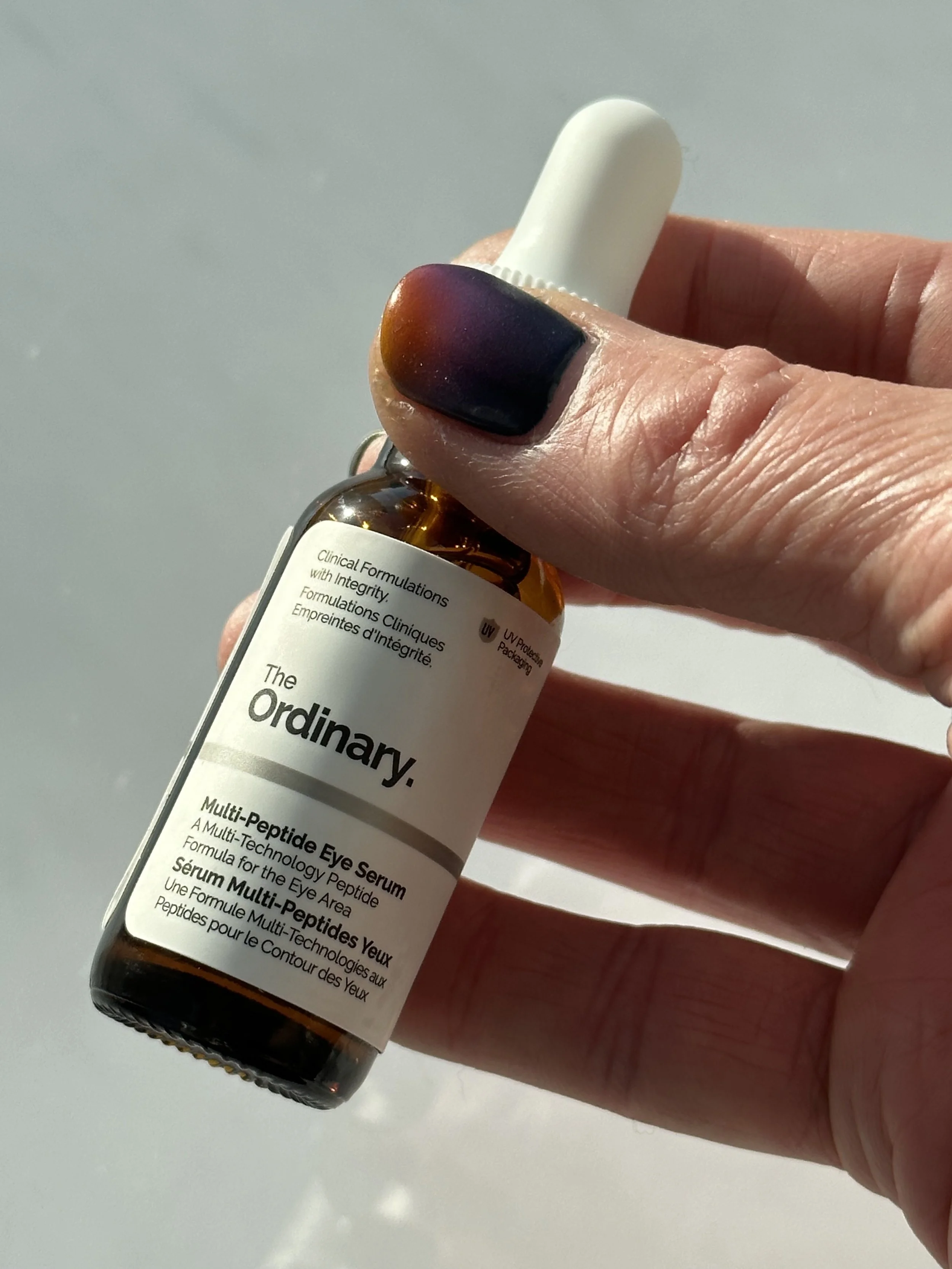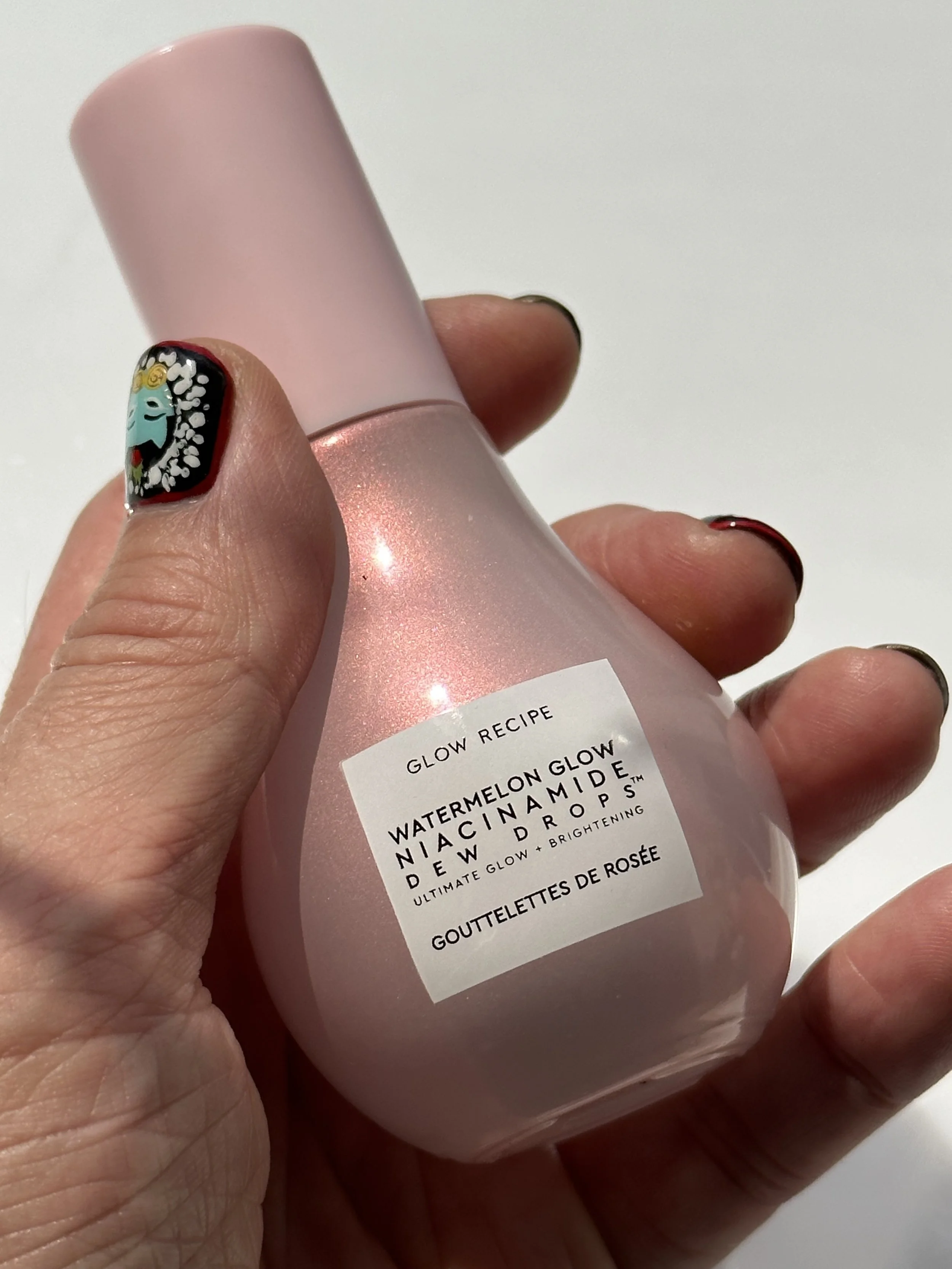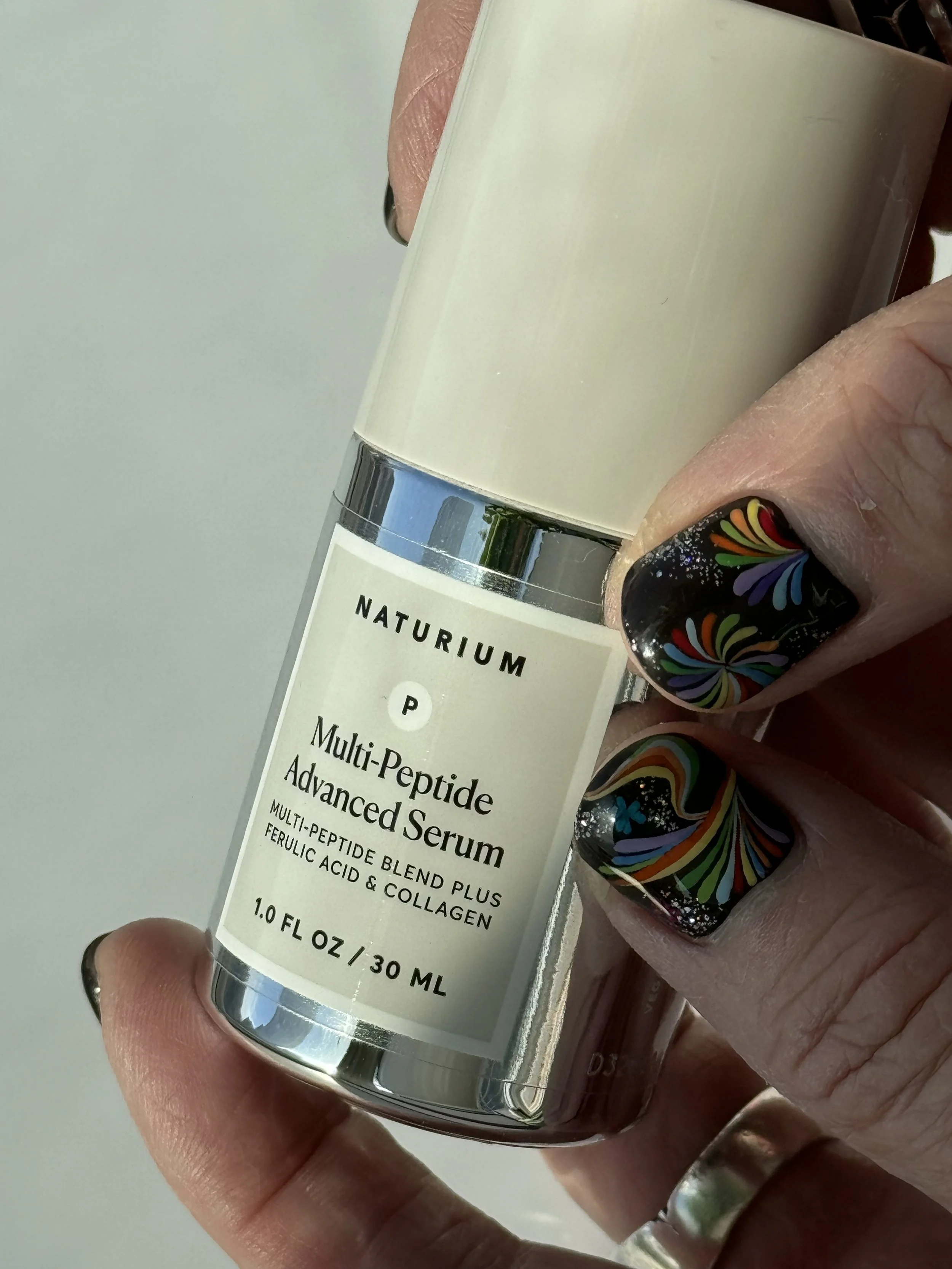PRODUCT REVIEW: GLOW RECIPE POMEGRANATE PEPTIDE FIRMING SERUM - What are the benefits of peptides for skin? Are peptides better than retinol? Can peptides and vitamin c be used together?
GLOW RECIPE POMEGRANATE PEPTIDE FIRMING SERUM
I don’t think I’m being overly dramatic when I say that 2023 has been The Year of Peptides. (Okay, the caps were a bit much!)
There have been so many amazing new plumping peptide serums and anti-aging face creams with peptides that it’s been a challenge to keep up with all the new launches.
I blame The Ordinary! The hyper-accessible skincare brand accelerated the peptide craze at the start of the year when they repositioned, repackaged and renamed their “Buffet” serum Multi-Peptide + HA Serum.
I remember thinking it was a needless marketing change at the time. But it turned out to be prescient – and I’m sure supported by a ton of Estée Lauder corporate market research that indicated consumers were hot for peptides. In fact, the word “peptides” is among the top 10 most searched for skincare ingredients along with Vitamin C, Salicylic Acid, Niacinamide and Retinol.
Not to lose momentum, The Ordinary introduced their Multi-Peptide Eye Serum – a four-peptide cocktail with a delightfully velvety texture for the eye area. I use it every night beneath an eye cream and have gone through a half dozen bottles since I first reviewed it here.
Soon after, came the Paula’s Choice Pro-Collagen Multi-Peptide Booster and Naturium’s Multi-Peptide Moisturizer – one of the most affordable and best peptide face creams I’ve come across. Last month, Naturium also introduced an anti-aging peptide serum and a peptide eye cream – all signs that the year’s peptide craze continues unabated.
Recently I’ve had the great pleasure of being among the first to try the new Glow Recipe Pomegranate Peptide Firming Serum. As with everything the brand does, Glow Recipe’s newest serum is such a pleasure to use that I look forward to applying it way too much. More on Glow Recipe’s heavenly peptide serum below…
THE BEST GLOW RECIPE PRODUCTS
Of course. the concept of peptides in skincare isn’t new. How long ago did the Drunk Elephant Protini Polypeptide Cream come out? In fact, it was January, 2018 – five years ago. At this point, it’s iconic.
But new peptide technologies are constantly coming to market to address various skin aging concerns – from sagging skin to cell renewal, the appearance of surface lines and wrinkles, and more. Much more!
If you’re curious like me, you’ve probably wondered, What are peptides? and What do peptides do for skin? Peptides are actually simple to describe, yet oddly complex and mysterious at the same time.
The experts on the Paula’s Choice research team published a concise, but well-sourced article on all-things peptides titled simply, Peptides.
From the piece, “Peptides are portions of short or long-chain amino acids, and amino acids are the building blocks of protein. Skin is composed primarily of a protein known as keratin, so peptides have a role to play as part of a complete skincare routine…”
PRODUCT REVIEW: PAULA’S CHOICE PRO-COLLAGEN MULTI-PEPTIDE BOOSTER
“Don’t get seduced by the notion that there’s a best peptide or peptide blend because there isn’t. There are dozens and dozens of remarkable peptides and more being discovered (or made in a lab) every day.”
Because new peptide technologies abound, it’s unclear how many unique peptides there actually are or how many different peptides are used in skincare products throughout the marketplace. But what is clear is that specific peptides perform differently in the skin to deliver a unique benefit.
Certain peptides can help stimulate collagen production, while others improve skin’s elasticity, reduce the appearance of wrinkles – and even more broadly, enhance overall skin health.
Each peptide may have a specific function or target only one particular skin concern. For example, Tridecapeptide-1 is a “folded peptide” that helps reduce the look of fine lines and wrinkles.
The Palmitoyl Tetrapeptide-72 amide found in the new Paula’s Choice Pro-Collagen Multi-Peptide Booster is a synthetic peptide that “acts on numerous supportive elements in skin, helping to maintain a firmer, tighter look and feel.”
PRODUCT REVIEW: THE ORDINARY MULTI-PEPTIDE + HA SERUM - WHAT HAPPENED TO THE ORDINARY’S BUFFET SERUM?
If you’re into skincare, it’s likely you’ve heard of Matrixyl™ 3000 – one of the first broadly available peptide technologies available for use in facial skincare.
The popular Matrixyl™ 3000 peptide molecule found in The Ordinary’s Multi-Peptide + HA Serum is a complex of two synthetic peptides: palmitoyl tripeptide-1 and palmitoyl tetrapeptide-7. These peptides work synergistically to help stimulate collagen production and improve the cellular health of skin cells.
Anti-aging skincare products often contain a combination of peptides to address multiple skin concerns. These peptides often combine to improve texture, firmness and skin’s overall appearance.
Moisturizers, serums, and eye creams with peptides are some of the most sought-after products today. In fact, The Ordinary’s Multi-Peptide + HA Serum is one of the brand’s most successful product launches ever – even though the newly positioned $13 face serum is actually the same formula as the original “Buffet” serum.
CATCH THIS GLOW RECIPE PEPTIDE SERUM IN ACTION!
Before I get into my detailed Glow Recipe Pomegranate Peptide Firming Serum product review just below, I wanted to explore some of the most frequently asked questions about anti-aging peptides and how they compare to and complement other popular anti-aging actives.
1. What are the benefits of peptides for skin?
Peptides have become increasingly popular in anti-aging skincare products due to their enhanced benefits for the skin. But what are peptides? Well, simply, peptides are short chains of amino acids – the building blocks of proteins. They play a crucial role in various biological processes, including collagen production, wound healing, and skin’s elasticity.
With dozens of peptides available for use in skincare, many with unique abilities, the benefits are broad. Among the most notable benefits of peptides for the skin are:
Collagen production: Collagen is a naturally occurring protein that provides structure and elasticity to the skin. Some peptides can help stimulate collagen production to improve skin’s firmness and, in turn, reduce the appearance of surface lines and wrinkles.
Hydration: Peptides can help enhance skin’s hydration levels by strengthening the skin barrier to help defend against trans-epidermal water loss (TEWL) – the leading cause of dehydration. This results in more sustained moisture and a plumper appearance.
Antioxidant protection: Peptides often have antioxidant properties that can help protect from skin-aging free radical damage. By neutralizing free radicals, peptides can help reduce the signs of aging, including surface lines and wrinkles and dark spots.
Wound healing: Peptides have been shown to promote wound healing by stimulating the production of collagen and other proteins involved in the healing process. They can also help reduce inflammation and improve the overall healing response of the skin.
Brightening: Some peptides have been found to have skin brightening properties. They can even help reduce the appearance of dark spots and uneven skin tone, resulting in a more radiant complexion.
Explore my picks of the best Glow Recipe products on the blog here.
Sources: Healthline: Peptides and Your Skin Care Routine; Paula’s Choice: What Are Peptides and What Do They Do for Skin?
2. Are peptides better than retinol?
Both Retinol and the broad range of peptide molecules are considered among the best anti-aging ingredients used in skincare. And both have been shown to have extensive benefits for skin health and can address multiple signs of skin aging; but they work in different ways – and are not at all mutually exclusive.
Peptides can stimulate collagen production, improve skin hydration, reduce inflammation, and deliver antioxidant defense – among their many benefits. Some peptide molecules can help enhance skin firmness, reduce the appearance of wrinkles and fine lines, and even promote wound healing. Peptides can also contribute to a more even skin tone and a radiant complexion. However, it’s important to keep in mind that the effectiveness of peptides will vary depending on the specific technology used and its concentration in the product.
Retinol, on the other hand, is a retinoid and derivative of Vitamin A known for its unrivaled ability to increase cell turnover and stimulate collagen production. Retinol can help improve skin texture, reduce the appearance of wrinkles, and even out skin tone. Extensive studies support the notion that Retinol is perhaps the best anti-aging ingredient used in topical skincare. However, Retinol and specifically more potent retinoids like Tretinoin, can also cause extreme irritation, dryness, and even sensitivity to sunlight – especially when used in high concentrations.
Ultimately, whether peptides or Retinol are better for your skin depends on your specific skin concerns, your skin’s level of sensitivity, and your product preferences. Some individuals find that peptides work better for them, while others prefer the more powerful anti-aging benefits of Retinol.
Explore my picks of the best Retinol face serums and creams on the blog here.
Sources: Cosmetologists: Retinol vs. Peptides. Which ingredient is better for wrinkles & anti-ageing?; 100% Pure: Peptides vs. Retinoids Which is Best for Your Skin; Paula’s Choice: What Are Peptides and What Do They Do for Skin?
3. Can peptides and vitamin c be used together?
Yes, peptides and Vitamin C can be used together in a skincare routine and are sometimes combined in a single formulation. Both peptides and Vitamin C have their own uniquely exceptional benefits for your skin health and, when used in combination, can complement each other’s anti-aging effects.
Vitamin C and peptides are each effective antioxidants that can offer broad protection from skin-aging environmental damage. A study published by the National Library of Medicine at the NIH “demonstrated that a combined treatment with collagen peptide and vitamin C attenuated age‐related skin atrophy by reducing oxidative damage.”
Certain peptides can stimulate collagen production, improve skin hydration, and have antioxidant properties. Specific peptide technologies can help enhance skin firmness, reduce the appearance of wrinkles, and promote wound healing.
Similarly, Vitamin C stimulates collagen production and is one of the most potent antioxidants for protecting skin from free radical damage. It’s also a superb skin brightener and with consistent use is proven effective for evening out skin tone and reducing the appearance of dark spots resulting from photodamage. In fact, Vitamin C is one of the best skincare actives for addressing visible hyperpigmentation.
When used together, peptides and Vitamin C can provide a comprehensive approach to fighting existing signs of skin aging and helping to prevent new forms of skin aging when used with an effective daily sunscreen.
Explore my picks of the best Vitamin C serums on the blog here.
Sources: NIH, National Library of Medicine, PubMed: Effectiveness of a formulation containing peptides and vitamin C in treating signs of facial ageing: three clinical studies
4. Is pomegranate extract good for skin?
Pomegranate Extract is known to have several benefits for skin health. The pomegranate fruit is rich in antioxidants, vitamins, and minerals that can contribute to overall health. The extract derived from pomegranates contains compounds such as ellagic acid, punicalagins, and anthocyanins, which have been studied for their positive effects on skin.
Most notably, Pomegranate Extract is a potent source of antioxidants, substances which help protect the skin from free radical damage and oxidative stress – powerful aggressors that damage skin and lead to multiple visible signs of aging.
Additionally, Pomegranate Extract possesses anti-inflammatory properties that can help soothe and calm the skin. It may thus be most beneficial for those with inflammatory conditions like acne, eczema, or psoriasis. The anti-inflammatory effects of Pomegranate Extract can help reduce redness and irritation – and promote overall skin health.
Pomegranate Extract also has superb moisturizing properties that can help improve skin’s hydration levels to prevent dehydration and leave skin more plump and supple. This is particularly beneficial for individuals with dry or dehydrated skin.
Lastly, Pomegranate Extract contains natural acids and enzymes that can help to gently exfoliate the skin and leave the complexion brighter and more even.
Explore my picks of the best Glow Recipe products on the blog here.
Sources: NIH, National Library of Medicine, PubMed: Potent health effects of pomegranate; Byrdie, The Benefits of Pomegranate for Skin, According to Dermatologists
5. Product Review
Glow Recipe Pomegranate Peptide Firming Serum Review
I often say that Glow Recipe infuses their skincare with so much joy it should be listed as an ingredient in the INCI. And it’s quite true that every product from the brand is highly pleasurable – in addition to being highly pro-skin health.
When I use a Glow Recipe face serum or cream, it represents a moment of skincare joy that I rarely experience with any other brand’s products. They just seem to strike the perfect balance between a sensorial, luxurious experience with a highly functional, efficacious product. I think the best way to describe a Glow Recipe serum is to equate it to a healthy cupcake!
And the new Glow Recipe Pomegranate Peptide Firming Serum lives up to that standard. The smooth, gooey and milky serum is wonderful from the very first drop, bathing your skin in peptides, Hyaluronic Acid, and both Pomegranate Fruit Extract and Pomegranate Seed Oil.
Its velvety texture melts instantly into your skin, making it super easy to layer with other serums. No need to give up your 15% Vitamin C serum or your go-to 10% Niacinamide serum – or be concerned with application order or ingredient conflicts. (For me though, my Niacinamide and Vitamin C serums are always the first to go on as they’re most often the thinnest.)
I’ve posted reviews of multiple Glow Recipe products this year. Among my favorites are Glow Recipe’s Watermelon Glow Niacinamide Dew Drops and the Glow Recipe Watermelon Glow Niacinamide Sunscreen SPF 50 – one of my fave facial sunscreen finds of 2023. (Catch my reviews here of my top picks of the best Glow Recipe products.)
Each of those Watermelon and Niacinamide-themed products delivers multiple benefits beyond what the product name suggests. And the new Glow Recipe Pomegranate Peptide Firming Serum does the same.
I like to think of the Pomegranate Peptide Firming Serum as one part peptide serum, one part hydrating serum and one part antioxidant serum. And it does each of those things exceptionally well.
That’s not always the case with Glow Recipe. In fact, as much as I love the brand’s Watermelon Glow Niacinamide Dew Drops, it’s not really among the best Niacinamide face serums. It’s formulated with the minimum 2% concentration of Niacinamide to be effective at delivering the most basic benefits of the antioxidant active. Again, it’s more than just an antioxidant serum with Niacinamide.
SKIN FIRMING HAS NEVER BEEN SO FUN!
Glow Recipe’s Pomegranate Peptide Firming Serum has been optimized for performance. There are multiple peptide technologies in the formula, including what the brand describes as “a blend of signal peptides and copper tri-peptides to help rebuild & repair damaged skin while supporting collagen and elastin to help skin look more lifted and increase firmness.”
There are multiple humectants in Glow Recipe’s peptide serum, too, that effectively prevent trans-epidermal water loss (TEWL) – the leading cause of skin dehydration.
And, as importantly, there’s a cocktail of potent antioxidant extracts to help protect your skin from aging environmental aggressors. Among these are its signature Pomegranate Seed Oil and Pomegranate Fruit Extract and an additional fermented extract of pomegranate fruit.
The Glow Recipe Pomegranate Peptide Firming Serum is a superbly well-rounded anti-aging face serum with the ability to prevent skin aging and address multiple signs of existing skin aging. IMO it’s the brand’s best face serum yet!
6. Pros & Cons
What I like about it: The Glow Recipe Pomegranate Peptide Firming Serum is hands-down the brand’s best face serum to date. It’s packed with pro-skin health, anti-aging actives that help improve the quality of your skin more and more each day. In true Glow Recipe fashion, it’s a pleasure to use and is super easy to layer with other face serums in your routine.
What I don’t like about it: I like everything about it, including it’s subtle fruity-floral aroma.
Who it’s for: All skin types, even sensitive skin, oily skin and acne-prone skin.
SHOP THE BLOG: Want to try it for yourself? Purchase the Glow Recipe Pomegranate Peptide Firming Serum for $45 here.
The Ingredient List of the Glow Recipe Pomegranate Peptide Firming Serum:
 sii|h 0 0, Acacia Senegal Gum, Pullulan, Squalane
sii|h 0 0, Acacia Senegal Gum, Pullulan, Squalane  sii|emo 0 1, Copper Tripeptide-1
sii|emo 0 1, Copper Tripeptide-1  cci|so|aox, Sr-Hydrozoan Polypeptide-1 h|sunsc, Punica Granatum (Pomegranate) Seed Oil
cci|so|aox, Sr-Hydrozoan Polypeptide-1 h|sunsc, Punica Granatum (Pomegranate) Seed Oil  aox|emo, Punica Granatum (Pomegranate) Fruit Extract, Hyaluronic Acid
aox|emo, Punica Granatum (Pomegranate) Fruit Extract, Hyaluronic Acid  sii|h, Sodium Hyaluronate
sii|h, Sodium Hyaluronate  sii|h 0 0, Ethylhexyl Palmitate emo 0 2-4, Tocopherol
sii|h 0 0, Ethylhexyl Palmitate emo 0 2-4, Tocopherol  aox 0-3 0-3, Lactobacillus/Punica Granatum Fruit Ferment Extract
aox 0-3 0-3, Lactobacillus/Punica Granatum Fruit Ferment Extract  exf, Elastin, Bidens Pilosa Extract h, Linum Usitatissimum (Linseed) Seed Oil
exf, Elastin, Bidens Pilosa Extract h, Linum Usitatissimum (Linseed) Seed Oil  emo|perf, Enteromorpha Compressa Extract, Engelhardtia Chrysolepis Leaf Extract, Ocimum Sanctum Leaf Extract, Silybum Marianum Fruit Extract, Leuconostoc/Radish Root Ferment Filtrate amic|pres, Gossypium Herbaceum (Cotton) Seed Oil 2 3, Tetrasodium Glutamate Diacetate chel, Trihydroxystearin vc, 1,2-Hexanediol solv, Dilauryl Citrate emo, Polyglyceryl-4 Laurate emu, Polyacrylate Crosspolymer-6 vc, Rhizobian Gum vc, Elaeis Guineensis Oil emo, Polymethylsilsesquioxane, Sorbitan Laurate emu 1-2 1-2, Glucomannan
emo|perf, Enteromorpha Compressa Extract, Engelhardtia Chrysolepis Leaf Extract, Ocimum Sanctum Leaf Extract, Silybum Marianum Fruit Extract, Leuconostoc/Radish Root Ferment Filtrate amic|pres, Gossypium Herbaceum (Cotton) Seed Oil 2 3, Tetrasodium Glutamate Diacetate chel, Trihydroxystearin vc, 1,2-Hexanediol solv, Dilauryl Citrate emo, Polyglyceryl-4 Laurate emu, Polyacrylate Crosspolymer-6 vc, Rhizobian Gum vc, Elaeis Guineensis Oil emo, Polymethylsilsesquioxane, Sorbitan Laurate emu 1-2 1-2, Glucomannan  h, Ethylhexylglycerin pres, Phenoxyethanol pres, Potassium Sorbate pres, Citric Acid buff, Sodium Hydroxide buff, Fragrance/Parfum
h, Ethylhexylglycerin pres, Phenoxyethanol pres, Potassium Sorbate pres, Citric Acid buff, Sodium Hydroxide buff, Fragrance/Parfum  perf
perfTHIS PAULA’S CHOICE SUNSCREEN IS EVERYTHING!
IS IT REALLY A SCAM?
Find out on my TikTok channel.
MY TOP VITAMIN C PICKS: VITAMIN C SERUMS I’M CRUSHING ON FROM ALGENIST, NATURIUM AND MORE
WATCH MY VIDEO REVIEW
THE BEST NIACINAMIDE SERUMS FOR CLOGGED PORES AND A BRIGHTER COMPLEXION
ON MY YOUTUBE CHANNEL HERE
WATCH MY VIDEO REVIEW OF
SKINCARE HACKS: GLYCOLIC ACID IS THE NATURAL DEODORANT THAT WORKS!
ON MY YOUTUBE CHANNEL HERE
WATCH MY VIDEO REVIEW OF
MY FAVORITE HUMECTANT SERUMS FROM PAULA'S CHOICE, THE INKEY LIST, GHOST DEMOCRACY AND MORE
ON MY YOUTUBE CHANNEL HERE
WATCH MY VIDEO REVIEW
COOL CLEAN FACIAL SUNSCREENS TO KEEP US SAFE AND SMILING IN THE SUN!
ON MY YOUTUBE CHANNEL HERE
WATCH MY VIDEO REVIEW
THE OPULUS BEAUTY LABS RETINOL SYSTEM – THE COOLEST RETINOL INNOVATION I’VE EVER SEEN
ON MY YOUTUBE CHANNEL HERE
WATCH MY VIDEO REVIEW
MY 2021 VITAMIN C PICKS + THE BEST VITAMIN C SERUMS TO BRIGHTEN UP THE COMPLEXION!
ON MY YOUTUBE CHANNEL HERE
WATCH MY VIDEO REVIEW OF
MY WINTER SKIN SAVIOR: SKINFIX BARRIER+ LIPID REPLENISHING SKINCARE
ON MY YOUTUBE CHANNEL HERE
WATCH MY VIDEO REVIEW
A COMPLETE K-BEAUTY ROUTINE WITH THE BEST FACIAL SKINCARE FROM PURITO, COSRX, MISSHA & MORE!
ON MY YOUTUBE CHANNEL HERE
WATCH MY VIDEO REVIEW
THE YEAR’S BEST VITAMIN C SERUMS WITH PAULA'S CHOICE, SUNDAY RILEY, THE INKEY LIST AND MORE!
ON MY YOUTUBE CHANNEL HERE
WATCH MY VIDEO REVIEW OF
A SELFCARE SUNDAY NOT FOR THE FAINT OF HEART – WITH THE PAULA’S CHOICE 25% AHA PEEL!
ON MY YOUTUBE CHANNEL HERE


